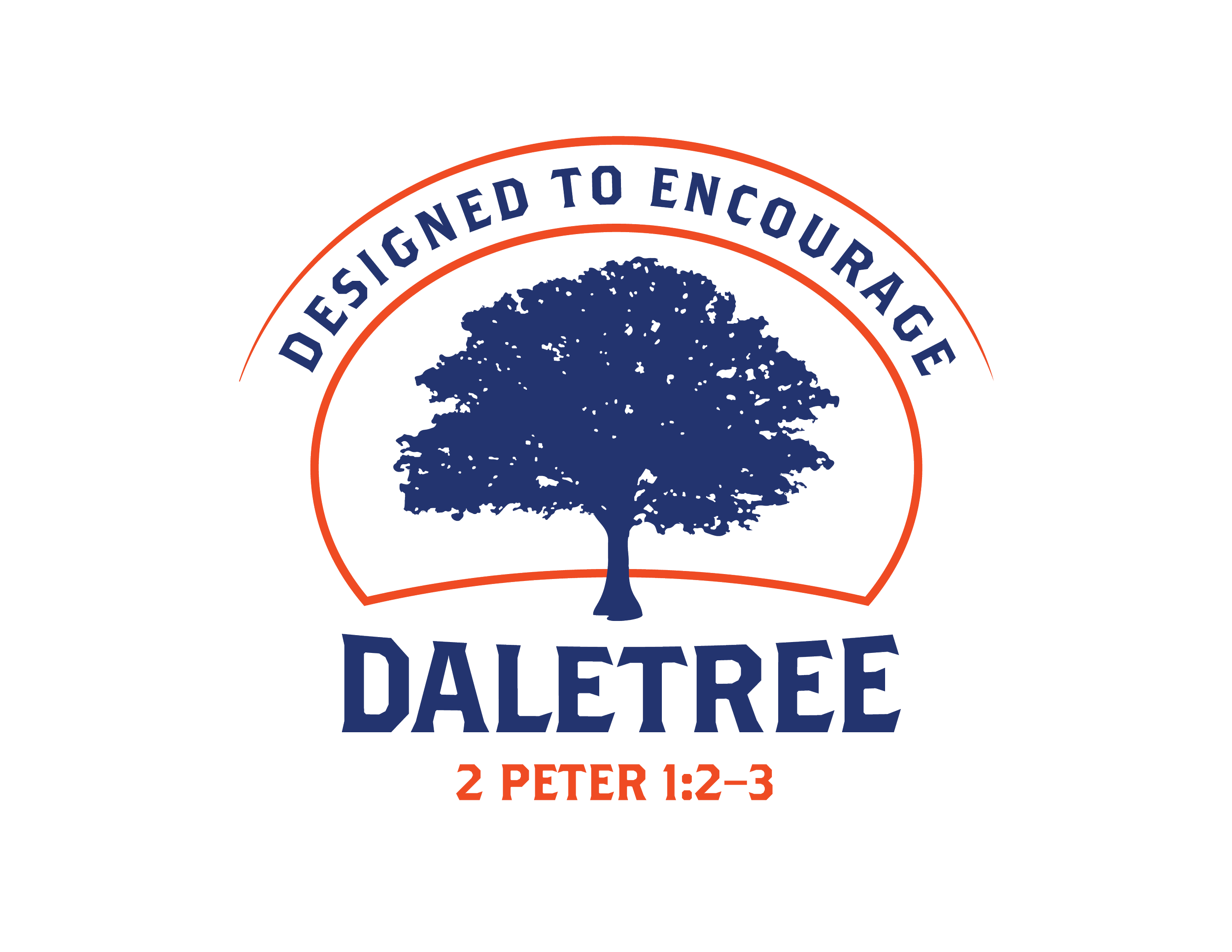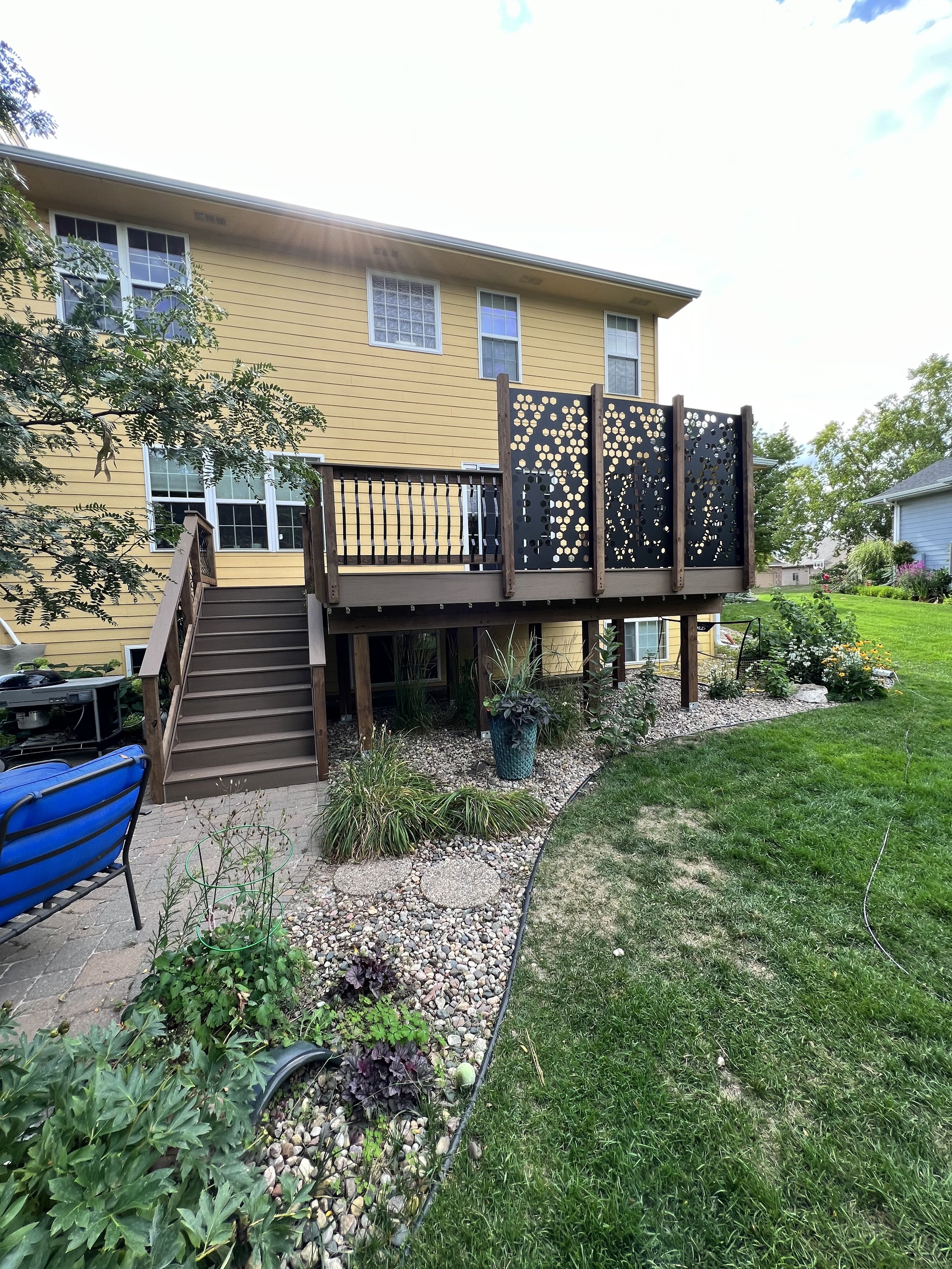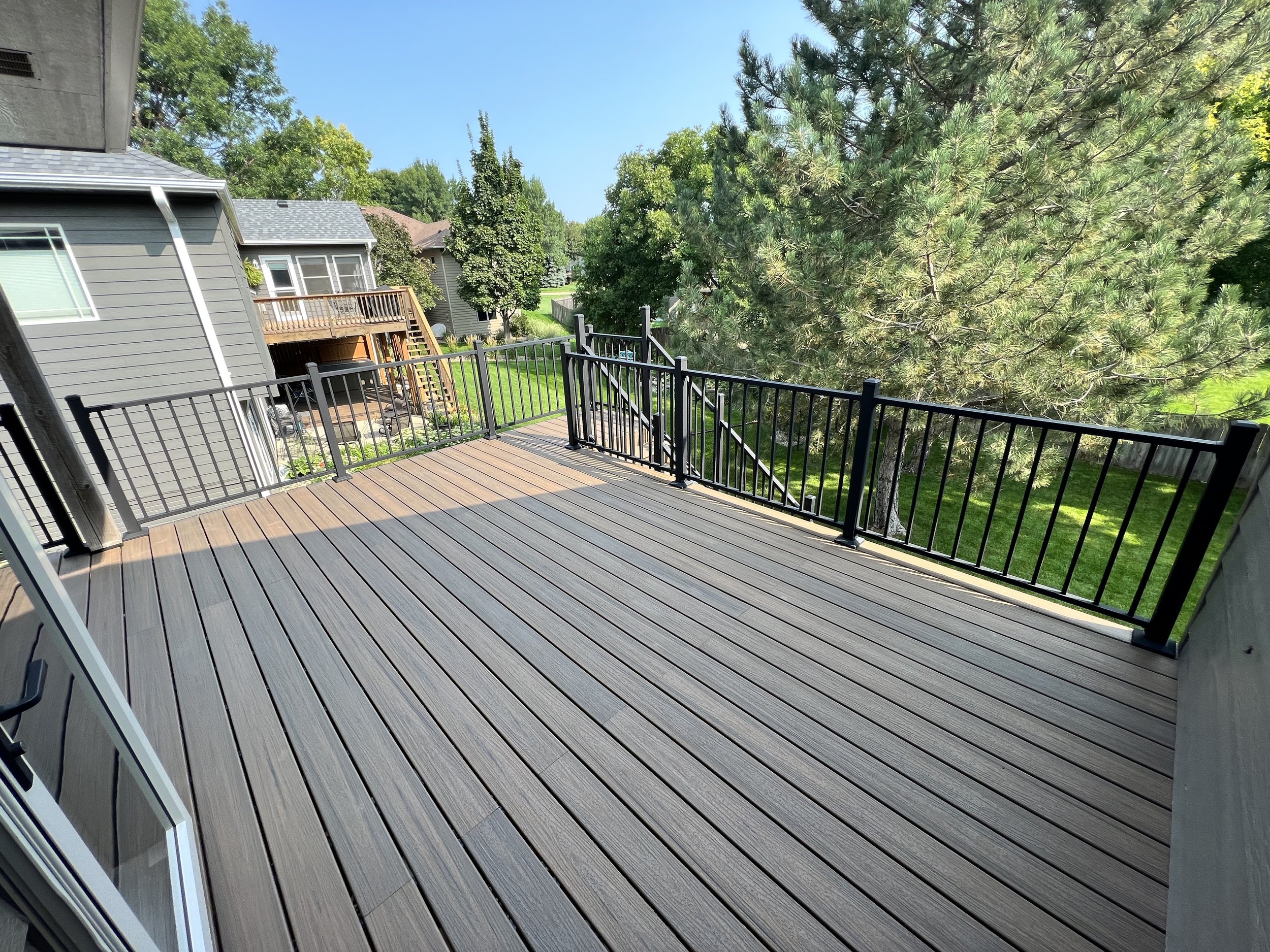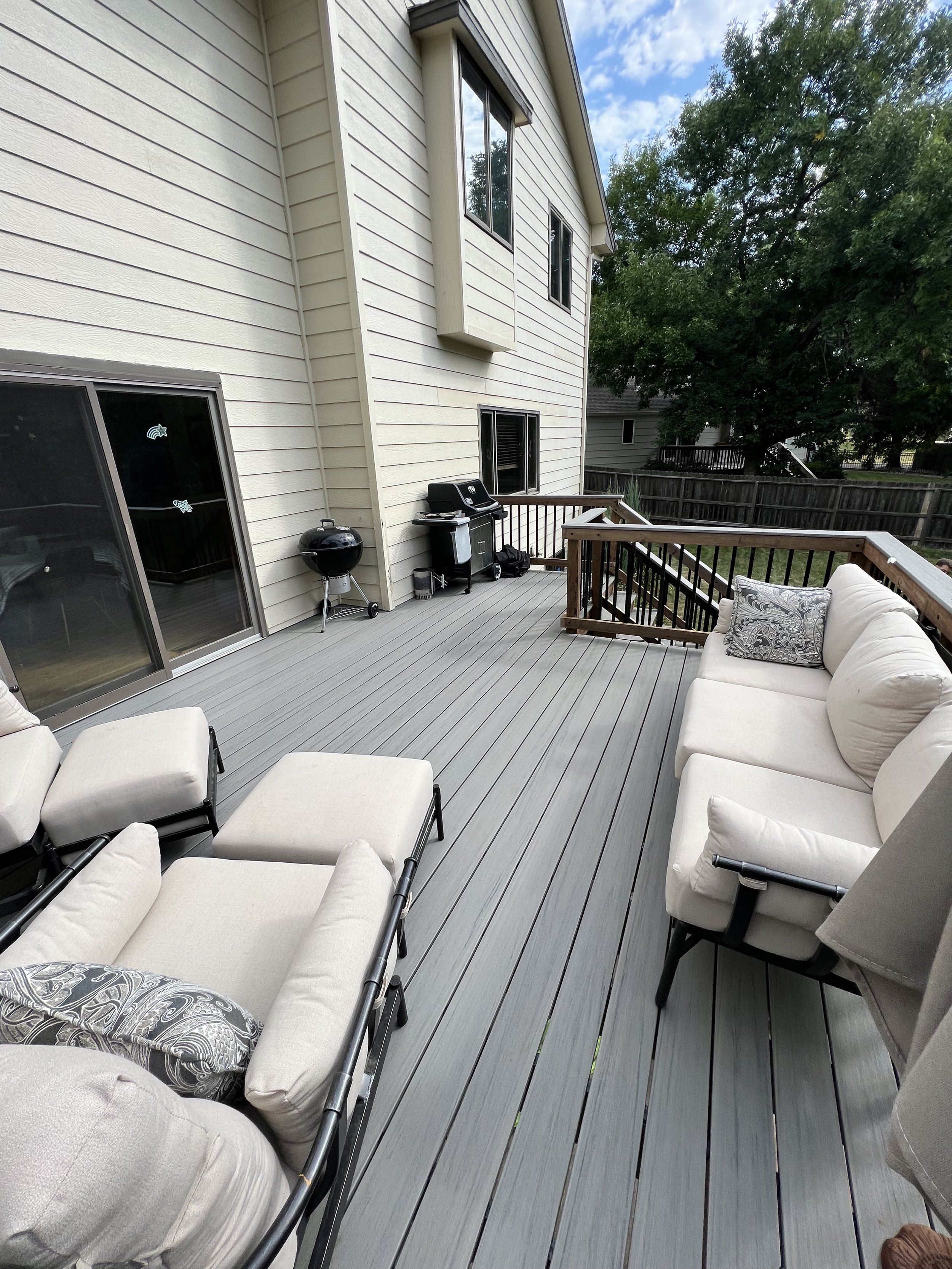Composite Deck Boards
Trex and TimberTech, two very common and durable options
Trex Enhance Rocky Harbor and Clam Shell accent border
But first, let’s look at the pros and cons of going with composite in the first place
The benefits of composite decking
1. Trex and TimberTech Composite Deck Boards are Both Considered to be Low Maintenance
TimberTech Composite Collection - Dark Cocoa
You don’t need to stain or treat their boards. It is however recommended to power wash them with an “appropriate” power washer once a year (this is a large topic all by itself… you can get too strong of a power washer and ruin the board).
They also have a deck wash or brightener that does a wonderful job about getting the dirt and seasonal grime lifted off of your boards.
2. Composite Deck Boards from Trex and TimberTech are also Durable
Many scratches and abrasions work themselves out throughout the summer time. And if the summer heat doesn’t, a blowdryer usually will. But be careful if you use a heat gun or blow dryer, as it can bubble if too much heat is added.
The downsides of Composite Decking
1. Composite Deck Boards Can Get Really Hot
The main thing we hear from customers in regards to composite decking, is the heat retention. During the hot summer days, these boards can really soak up the sun. It’s not to say that both Trex & TimberTech haven’t made any advances in keep their boards cooler (they have), but they both have room to improve with regards to this…specifically with their base or entry level composites. In both cases, you have to go with their upper tier deck boards.
2. If Not Installed Correctly, They Can Delaminate.
We have noticed on many occasions composite deck boards that have delaminated. Which just means the top layer separates from the composite within the board. This can occur when the ends are not cut with a saw and left exposed.
As certified installers, we make sure to install them correctly so that this is minimized as much as possible.
Differences Between Trex & TimberTech - An Installers Observation
Trex Enhance - Toasted Sand
Trex Composite Decking
We’ve installed more Trex decking than all other brands combined… and for good reason:
They’re durable and will last families for many years into the future
It’s a reputable brand name that has stuck by supporting their customers when issues arise
They have different levels of limited warranties, from a 25-year manufacture to a limited labor warranty for their upper tiered products
For the most part, they’re easy to repair if something does fall on the board and requires a replacement
Its easy to work with and seems to be more durable when installing in comparison to PVC deck boards
There are some things worth noting in regard to Trex Composite Deck Boards:
Trex more than TimberTech (again, more of an observation than a scientific study) seems to retain its heat more than TimberTech Composite. This could be for a number of reasons, from the shape of their base-level boards compared to TimberTech, or the type of material used for composite
Out of the two that will delaminate easier if you don’t cut the ends correct, Trex seems to be more sensitive than TimberTech.
Some of the Trex boards are more prone to be slippery when wet than some of their other boards. We haven’t been able to determine which product families are more sensitive than others, but we do get this for feedback a few times a year from our customers.
TimberTech Composite Decking
TimberTech Composite Collection - Sea Salt Gray
TimberTech Composite Decking is another amazing manufacturer. They have many of the same pros and cons as Trex does above, but with these notable differences:
TimberTech seems to be slightly better in terms of quality, but only just. From the lack of delamination at the ends to the texture at the top of the boards. They have really taken time to engineer their boards with quality in mind… even at their base level Prime & Prime+ boards.
The lighter color boards from TimberTech don’t seem to stain as easily from leaves or seasonal debris. It doesn’t mean they’re immune to the occasional leaf stain during the fall, but it just doesn’t seem to be something we get a lot of feedback on from our customers vs Trex.
The profile of their base-level boards seems to be more desirable from our customers as well, vs the Trex washboard profile. Of course, both can be overcome by upgrading to their next respective tiers.
The medium and darker color boards also don’t seem to retain the heat as much. Don’t get me wrong, they still do when compared to PVC and wood, but it does “seem” to be a little better with heat management compared to Trex.
Their boards do seem to scratch a little easier. However, that may just be specific to PVC boards, which TimberTech makes, but Trex does not.
Trex vs. TimberTech Conclusion
Overall, our observation is that both Trex and TimberTech are great companies and provide their customers with quality composite boards. We will continue to install both.
Many times the reason one manufacturer gets chosen over the other has to do more with the slight color variations between the two than anything else. For whatever reason, one specific color of brown in one of the manufacturer’s offerings matches better with a customers house colors than the other brown from a different vendor. Unless something specific changes about each companies support or manufacturing process, we’ll continue to encourage our customers to pick one that has a color they like the best over any of the other reasons above.




